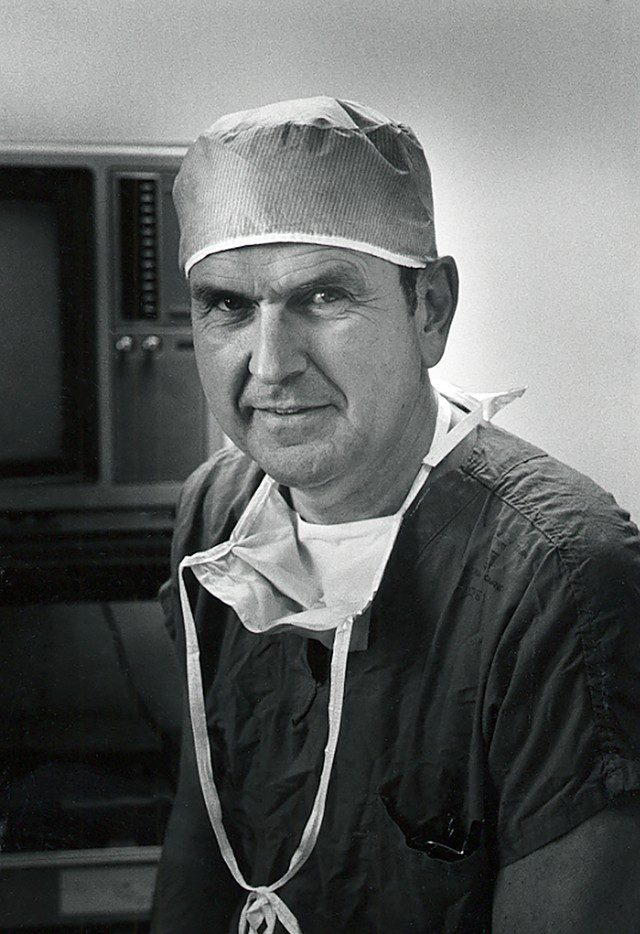In the October 2017 General Conference of The Church of Jesus Christ of Latter-day Saints, Elder Neil L. Andersen of the Quorum of the Twelve Apostles shared a story on international significance in his talk, “The Voice of the Lord.” Russell M. Nelson heard President Kimball discuss China long ago and chose to do something remarkable: follow the Prophet’s recommendation, even though it would require significant effort.
In 1979, five years before his call as a General Authority, Brother Nelson attended a meeting just prior to general conference. “President Spencer W. Kimball challenged all present to lengthen their stride in taking the gospel to the entire world. Among the countries President Kimball specifically mentioned was China, declaring, ‘We should be of service to the Chinese. We should learn their language. We should pray for them and help them.’”
At age 54, Brother Nelson had a feeling during the meeting that he should study the Mandarin language. Although a busy heart surgeon, he immediately secured the services of a tutor.
Not long after beginning his studies, Dr. Nelson, attending a convention, unexpectedly found himself sitting next to “a distinguished Chinese surgeon, Dr. Wu Yingkai. … Because [Brother Nelson] had been studying Mandarin, he began [a] conversation [with Dr. Wu].”
Dr. Nelson’s desire to follow the prophet led to Dr. Wu visiting Salt Lake City and Dr. Nelson traveling to China to give lectures and perform surgical operations.
His love for the Chinese people, and their love and respect for him, grew.
In February 1985, ten months after his call to the Quorum of the Twelve, Elder Nelson received a surprise phone call from China pleading for Dr. Nelson to come to Beijing to operate on the failing heart of China’s most famous opera singer. With the encouragement of President Gordon B. Hinckley, Elder Nelson returned to China. The last surgical operation he ever performed was in the People’s Republic of China.
Just two years ago, in October 2015, President Russell M. Nelson was once again honored with an official declaration, naming him an “old friend of China.”
How wonderful that this busy man took up the challenge to learn Mandarin. It can be done, even for those of us getting along in years. Studying a challenging foreign language is one of the best things you can do for your brain and for millions of neighbors on this planet.
His choice to act on this matter and learn a foreign language has had a huge impact. Because of his language skills, he would develop unique friendships and have rare opportunities to serve and influence a nation for good. In 2015 Elder Nelson visited China again and in was greeted by the grandson and son of the opera singer he operated on. In a tear-filled reunion that I can only assume was carefully arranged with the help of significant government officials, they said, “Thank you for saving our father.” Very sweet. Moments like that are worth all the effort of studying a foreign language, and at least some of the effort of mastering heart surgery.
I’m not sure what the meeting was in which Elder Nelson heard President Kimball speak of China and the importance of preparing by studying Chinese, but here is what President Kimball said in another meeting in 1978, reprinted in the Feb. 1979 Ensign in a First Presidency message entitled “The Uttermost Parts of the Earth“:
And what of China, the third largest country in the world? Nearly one billion of our Father’s children live in China, one-fourth of the entire world’s population. Six hundred and sixty million of them speak Mandarin Chinese. How many of us speak Mandarin Chinese? We must prepare while there is time to prepare to teach these people. Of course, we face great barriers, including political barriers, in many of these parts of the world.
Major changes are emerging within China today. The single most important drive in contemporary China is to become strong, independent, and modern….
The doors are opening gradually. The Spirit of the Lord is brooding over these nations under a new regime that is certainly more open and more receptive to western ideas than ever before. Such cultural and educational interchanges will offer opportunities for exposure to the gospel. We must be prepared. The Lord is doing his part and is waiting for us to open the doors. [emphasis added]
I read this while I was on a German-speaking mission in Switzerland and southern Germany, and resolved to study Chinese. I wish I had been more diligent because life would be much more productive for me now, but I did take several classes of Mandarin Chinese when I got back to BYU (my “extra-major skill”) and tried to keep studying over the years. Now I wish I had studied three or four times as much! Chinese is one of the few classes from my college days that I still depend on, along with social dance (albeit rarely).
President Kimball’s recommendation from almost four decades ago still strikes me as timely and wise for today. How many of you are preparing to share the Gospel with those of other nations and languages? Or simply preparing for a richer, more productive life with language study? In terms of sharing the Gospel, some doors have already begun to open. Others may open with surprising suddenness. Are we ready?
Chinese will continue to be one of the most useful, important, and beautiful languages to study. But if the Spirit moves you to study Arabic, Spanish, Russian, Portuguese, French, Hindi or Hausa, act on it. You don’t need to be a college student or missionary to learn a foreign language. It may seem tough for us old folks, but it is doable and can open wonderful new doors. The benefits of foreign language don’t come only through travel. Chinese speakers in St. George, Utah or Appleton, Wisconsin may find many opportunities to help others with their language skills as people from Asia increasingly travel and migrate to the US. Spanish, of course, is becoming a necessity in many parts of the US. Keep learning and preparing. Be ready to grab doors that come your way and swing them open.
Related posts:












The Latter-day Saints in the best situation to learn Mandarin are in Japan, where the Chinese characters are still a prominent part of written language and retain vestigial Chinese pronunciations in many usages. Japan has a lot of business and cultural interchange with China and Taiwan, so they are in a position to use Mandarin more frequently snd thus learn it better.
With President Nelson poised to be sustained as our prophet, is there speculation among the Church members in China about the country being opened up soon for missionary work?